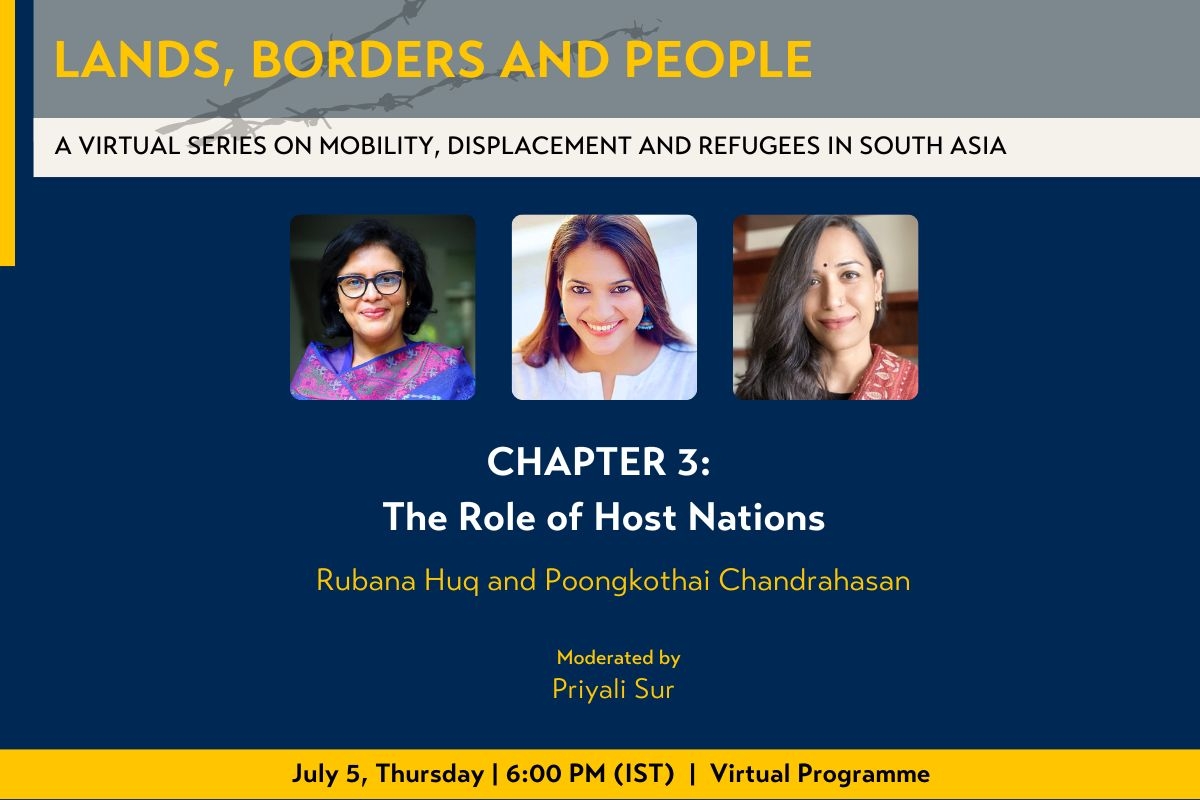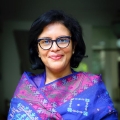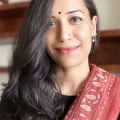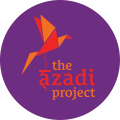The Role of Host Nations
VIEW EVENT DETAILSThe third in our four-part series on mobility, displacement and refugees in South Asia

The push for burden sharing of refugees continues to reverberate within the European Union, while in Turkey and Lebanon, the rhetoric surrounding the repatriation of refugees remains persistent. What do these situations have in common? They share a perception, often perpetuated by political and media rhetoric alike, that refugees are a drain and burden on the economy; that supporting them could lead to job losses of local communities and hinder economic prosperity.
However, numerous studies, including one conducted by the World Bank, indicate that refugees can actually make valuable contributions to the host economy. The World Bank's report, "Forced Displacement and Development," highlights that refugees possess employable and entrepreneurial skills that can stimulate economic growth – starting businesses, creating jobs, and contributing to innovation and trade.
Refugee communities are at a natural disadvantage in their host countries, because of the loss of assets, limited social networks, social and economic discrimination, and legal constraints, to name a few. Another report by the World Bank, "Jobs Interventions for Refugees and Internally Displaced Persons," points out that even when refugees have the unrestricted right to work, their labour market outcomes tend to lag behind those of other groups, at least in the short-to-medium-term. Addressing these challenges can be financially demanding for low- and medium-income countries, as it requires capital-intensive intervention programs.
There is, however, a positive economic impact of investing in refugees. A background paper published by the International Monetary Fund (IMF) titled "International Migration: Recent Trends, Economic Impacts, And Policy Implications" acknowledges this, and explains that while the net fiscal impact of immigration is may be negative initially -- reflecting the cost of humanitarian support and integration policies (in the case of refugees) -- it decreases as immigrants enter the labor force.
In the context of South Asia, the relationship between hosting refugees and the economy is particularly relevant due to the serious limitations faced by these countries in accommodating refugees while addressing their domestic society's urgent needs. While challenges arise from accommodating a large number of refugees, such as strain on resources and environmental concerns, there are also potential benefits, including the emergence of informal economic activities and increased demand for goods and services. In India, Tibetan refugees are engaged in various forms of work and are engage economically with the host economy.
How can host economies reskill refugees and harness their talents for mutual livelihood benefits? What strategies and interventions can prove effective in promoting economic integration and addressing the specific challenges faced by refugees in low- and middle-income countries like in South Asia? How can global and regional policy cooperation be established to respond to surges in humanitarian migration? Join us as we explore these questions and more from a socio-economic perspective along with our panelists Rubana Huq, Vice-chancellor of Asian University, Bangladesh and Poongkothai Chandrahasan, Founder CEO of Serendip Be The Change Foundation.
***
This panel is the third instalment of the four-part series Lands, Borders and People, scheduled as interactive learning modules in June and July 2023. The series aims to delve into a significant contemporary issue that impacts nations and communities globally: migration, displacement, and refugees. In each session, a panel of experts will examine various aspects of this topic, focusing on the legal, social, economic, and cultural dynamics specific to South Asia. The audience will comprise stakeholders actively involved in this sector, including human rights activists, lawyers, journalists, NGOs, and others Priyali Sur, Founder and Director of The Azadi Project will serve as the chair and moderator for all four sessions.
The four sessions in this series are:
June 8: International Law and the Politics of Displacement
June 15: Climate
July 5: The host economy
July 19: Media and language
To register your interest in this or the remaining sessions, please email us at [email protected]. The chapters will be hosted as Zoom meeting rooms, so they require pre-registration and have limited seating. Once you write to us, we will send you a Google form with more details, and links to the session closer to the date.
CHAPTER 3: SPEAKERS

Dr. Rubana Huq is a businesswoman, a poet, and currently the Vice Chancellor of Asian University for Women, an international university in Bangladesh. She is the immediate past President of the Bangladesh Garment Manufacturers and Exporters Association (BGMEA), and she was also the first female occupant of the post in four decades. She is the Chairperson of Mohammadi Group, a family business conglomerate who began with exporting readymade garments, and has since diversified into software, digital distribution, real estate and power generation. The group’s latest is the launch of a television channel called Nagorik. Huq won the SAARC Literary Award for her poems in 2006. Her first book of poems is titled 'Time of My Life'. She is the former CEO of TV Southasia, a collaborative platform of South Asian electronic media based in Kolkata. She was featured on the BBC's '100 Women' list in 2013 and 2014. In 2022, she was honored with the Human Rights Award by CNMI Sustainable Fashion Awards-2022 during the Milan Fashion Week, Italy. She represents the global manufacturers in the UNFCCC fashion industry charter for Climate Action for the period of 2021-2022. Dr. Huq holds a PhD in English Literature from Jadavpur University in Kolkata. She is currently an associate at the Asia Center at Harvard and an Executive-in-Residence at Stern, New York University.

Poongkothai Chandrahasan, a Sri Lankan Tamil actress, activist, filmmaker, and aspiring politician, is the founder-president and CEO of the Serendip Be The Change Foundation. Based in Jaffna, Sri Lanka, the foundation empowers war widows and victims of the civil war, impacting over 25,000 Eelam Tamils through The Green Empowerment Project, addressing food insecurity, gender-based violence, and poverty. She served as the Former Director of OfERR (Organisation for Eelam Refugees' Rehabilitation) from 2003 until 2020, empowering and educating Sri Lankan Tamil refugees and marginalized Indian women and children. She currently holds a position on the Board of Directors/Management Committee of OfERR. In 2016, Poongkothai founded Serendip Boutique, a social enterprise that markets sustainably crafted products made by Sri Lankan refugee women. The boutique's proceeds train more women with livelihood skills. During the pandemic, she initiated 'Yalpanam by Serendip,' a cloud kitchen serving authentic Sri Lankan cuisine in Chennai, empowering refugee women home cooks in camps. Additionally, Poongkothai is the co-founder and CEO of Asthtva Foundation, an NGO founded in 2008, working with Indian rural women and children on education, nourishment, and child safety. She is an aspiring politician and a member of the Tamil National Alliance. She comes from a lineage of political and social activists, including S. J. V. Chelvanayakam and Dr. E. M. V. Naganathan.
SERIES MODERATOR AND CHAIR

Priyali Sur is the Founder and the Executive Director of The Azadi Project. She has built and implemented programs across Europe, Africa and South Asia, helping refugees and migrants from Afghanistan, India, Iran, Iraq, Myanmar, Niger, Syria, Ukraine and Yemen. She was a former news anchor for CNN-IBN in India, and has consulted as a Social Development expert for the World Bank in Washington, D.C. Her work has been published in CNN, NPR, PBS, and The Guardian, among other international media outlets.
SERIES COLLABORATOR

Event Details
To register your interest in one or more of these sessions, please email us at [email protected].
